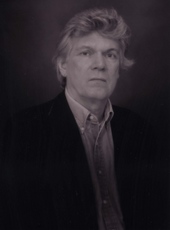
Japan does pop culture

Japan does pop culture
by James Bailey (May 2, 2009)
American pop culture exported to Japan has a long tradition of losing something in translation.
The Denny's restaurants in this Far Eastern country serve Chinese tan-tan noodles, but no Grand Slam breakfasts, and Shakey's offers dessert pizza topped with peach slices.
But for a taste of something really different, try a piping-hot slice of the American national pastime.
The massive popularity of baseball in Japan used to be seen by a lot of observers as yet another example of American pop culture's ability to steamroll its way into the hearts of millions overseas.
Then, in the 1970s, a 20-something U.S. Air Force veteran took a closer look and found that baseball had not so much transformed Japan as it had been transformed by Japan.
Batters in the country's two professional baseball leagues, he noted, made two to three times as many sacrifice bunts as did their stateside counterparts, while starting pitchers would throw so much their arms would be dead by the age of 30.
He discovered that players were subjected to grueling training regimens more suitable for participation in an Ironman competition than in a sport composed of short bursts of speed.
He learned that many coaches held pre-game team meetings -- complete with exhaustive reviews of past and future opponents -- everyday, as well as periodic post-game "self-reflection conferences," where criticism and fines were handed out for poor play.
Having compiled a comprehensive list of what the Japanese had done to the game he'd grown up playing in Northern California, Robert Whiting set out to explain why.
The result, "The Chrysanthemum and the Bat," was a fascinating study in cultural anthropology that Time magazine named the best sports book of 1977.
Not unlike the menu planners at Denny's and Shakey's, importers of American besuboru strove to make something foreign more pleasing to the Japanese palate.
"Japanese baseball, with its focus on hard work and harmony, is a window into Japanese society," says Whiting in an e-mail interview. "Through it, one can clearly see the differences between Japanese and American cultures and their potential for conflict when they get together."
Over the past 30 years, Whiting has expanded on his thesis in books like "The Meaning of Ichiro" and "You Gotta Have Wa," regarded by many as his magnum opus. First published in 1989, Wa has gone through 20 printings and been used as a textbook in Japan studies courses in universities throughout the United States.
As a rule, university textbooks tend to be overpriced and under interesting, while the updated material in those tomes can seem as superfluous as Chandler Bing's third nipple on "Friends." No such problems affect the 20th anniversary, updated edition of Wa (Vintage Departures; $15.95) , which went on sale this spring.
Whiting's 12,000-word afterword offers a smooth fast-forward to the first decade of this century, a time characterized by two major developments unimagined 20 years ago.
One of those changes is already familiar to MLB fans -- the huge influx of Japanese players into the lineups of a host of National and American League teams.
A less familiar change has been the increase in the number of Americans in managerial positions in Japan, a development Whiting hails as a "major step in the field of cross-cultural communication."
Particularly enjoyable is Whiting's description of the tenure of Trey Hillman, who guided the Nippon Ham Fighters to a 2006 Japan Series pennant, and now manages the Kansas City Royals.
A University of Texas grad who'd played only three years of professional baseball, Hillman was an effective motivational speaker to rival Tony Roberts, at least most of the time.
Once, an outfielder to whom he'd lectured about religion responded that, thanks, he had already found God. The God of baseball, that is.
Whiting -- who, for reasons best known to him, interviewed this writer for his book -- is a winning raconteur, yet he's also a realist about how far cross-cultural communication can go.
From the evidence he marshals, it seems unlikely that any American player will ever break baseball deity Sadaharu Oh's single-season record of 55 home runs. Not because the record can't be broken, but because some opposing pitchers, xenophobia clouding their view of the strike zone, won't let it be broken.
"Japanese and Americans like and understand each other more," Hillman tells Whiting, "but the question can be asked, is Japan really changing? The answer is, not very much."
Whiting, who divides his time between a condo in Tokyo and a home in Monterey, will embark on a promotional tour for "You Gotta Have Wa" later this year, with dates and venues yet to be determined.
To access the original work (if still available), please reference:
http://www.mercedsunstar.com/362/story/823789.html.
Back to the works of Robert Whiting
This work is licensed under a Creative Commons License.
Some rights reserved.
